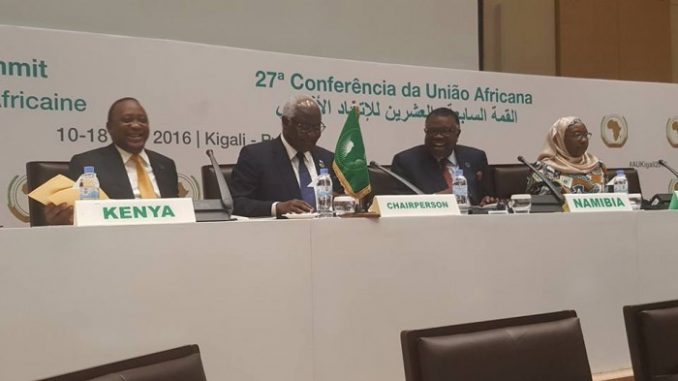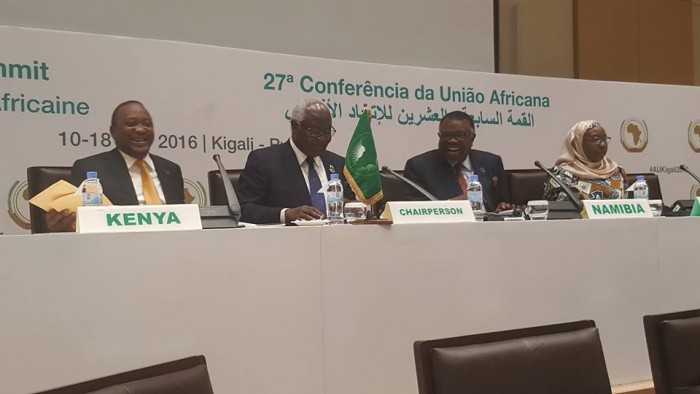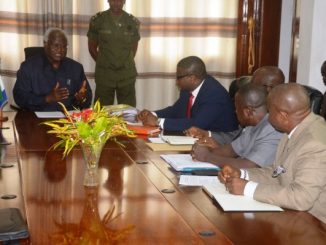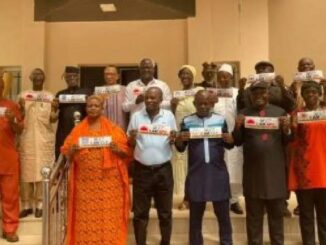
By State House Communication Unit
KIGALI CONVENTION CENTER, Kigali, Rwanda, Sunday July 17, 2016// — Sierra Leone’s President Dr Ernest Bai Koroma has said at the closed session of the 27th Ordinary Session of the Assembly of the African Union, that although tremendous progress have been made in raising the visibility and legitimacy of the Ezulwini Consensus and Sirte Declaration, visibility is not the ultimate outcome that the C-10 was set up to raise. “The C-10 did not set out to engage in consultations forever. Our ultimate objective is to build the consensus required for Africa to demand its rightful place on the global stage. That is the mandate the C-10, on behalf of the peoples of Africa and this Assembly, has been preoccupied with in the last decade. It is an aspiration that we all share; an aspiration we must all therefore work together to achieve,” he told the assembly of African leaders.
President Koroma urged his colleague Heads of State and Government that Africa should stay the course, continue to speak with one voice and remain united on all aspects of the UN Security Council reform process. “We must resist the temptation and efforts by other Member States and interest groups to divide and distract Africa from its Common Position,” he stated amid rapturous applause.
Whilst presenting the 18th Report alongside its draft Decision for adoption by the august body, Sierra Leone’s President categorically said that the recognition and legitimacy of the African demand to take its rightful place in global governance, can only translate into concrete achievements “if we continue to work together in articulating our aspirations and goals as a continent,” adding that Africans should take strong decisions on where their true allegiance and support on this issue lie.
President Koroma also noted that despite the challenges facing the intergovernmental negotiations (IGN), such as the difficulty of narrowing down on the differences of the various proposals submitted by Member States as well as procedural matters related to the reform process among others, the Ezulwini Consensus remains not just unchallenged, strong and viable to pursue as the best means of addressing the historical injustice of Africa’s under-representation in the non-permanent category and the non representation in the UN Security Council.
The Coordinator of the Committee of Ten Heads of State and Government lamented over the fact that in spite of Africa being the world’s second-largest and second-most-populous continent, Africans should not continue to undercut their influence in the world stage. “For seven decades, we have allowed our voices to be muffled, for seventy years we have accommodated the underrepresentation of Africa. We must put an end to this,” he emphasized and went further to remind the Assembly that they owe it to the 1.2 billion Africans to ensure the continent takes its rightful position on global matters. This, President Koroma said, can only be achieved “when we stand together; when we are united and when we speak with one voice in pushing a common agenda.”
The C-10 led by President Koroma have been pushing for Africa to have at least two permanent seats in the UN Security Council, with Veto power, and in an effort to guide the C-10 on the way forward, he urged the assembly to exchange views on the following:
1. Regional representation as opposed to individual Member States admission to the Permanent category;
2. Restate our position on the Veto and resist the creation of a third category of membership of the Security Council;
3. Resist an intermediate/transitional arrangement;
4. Encourage other African countries to delink membership of other interest groups which creates the impression of a divided Africa;
5. All AU Member States should continue to defend, promote and advocate the Common African Position on all aspects of the reform at every opportunity.




